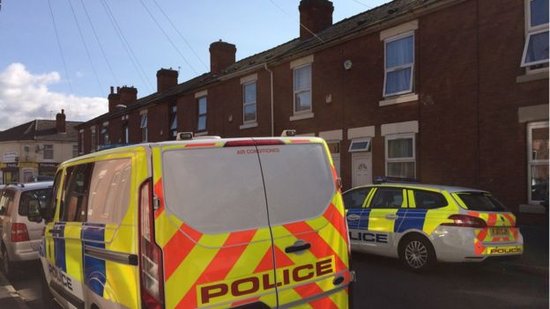When you hear the word “slavery” your mind probably conjures up historic images of men and women bound by chains in far-away countries. In reality, slavery still occurs today and is often much closer to home.
Here at Segura, we’ve been surprised by the amount of slavery cases surrounding us in the Midlands. In 2017, a man from Loughborough was charged under The Modern Slavery Act, accused of servitude and holding a person in slavery. The week before, six arrests were made after raids on five properties in Derby. Three men and three women are suspected of human trafficking after forcing victims to work whilst withholding their pay and documentation.
 View larger
View larger In January 2017, corporate slavery was uncovered by a Channel 4 Dispatches investigation when garment workers earning as little as £3 an hour were discovered working in a Leicester factory. The “sweatshop” was producing clothes for high street retailers. And this certainly isn’t limited to the Midlands. Human rights campaigner Cherie Blair says, “Modern slavery's always been a hidden problem and what's happened since we passed the Modern Slavery Act in 2015 is more and more light is being thrown onto this problem”.
In the past, the National Crime Agency estimated that there were between 10,000-13,000 people living as slaves in the UK but have recently announced that this is only the “tip of the iceberg” with cases affecting every town and city across the nation.
Despite the introduction of the Modern Slavery Act in 2016 and the work of numerous charities, the number of modern slavery victims in the UK is still estimated to be in the tens of thousands. Between January 2014 and the end of 2016, Leicestershire, Nottinghamshire, Derbyshire and Lincolnshire police found a total of 140 “modern slaves” and the number is likely to increase. A 40% rise in the number of identified modern slavery victims was found by a review to mark the first anniversary of the Modern Slavery legislation, with 289 modern slavery offences being prosecuted in 2016.
National Crime Agency’s vulnerabilities director, Will Kerr, warned that members of the public will unwittingly come into contact with victims of trafficking and modern-day slavery every day. It is essential that people are aware of the existence of slavery and are equipped with the knowledge of how to identify it. The Salvation Army identify multiple signs of slavery, including:
- The individual’s travel documents being possessed by another party
- Behaviour that suggests that the individual has been instructed on what to say/how to behave
- The individual receives little or no payment for their labour
- Transport and accommodation is organised and controlled by an employer or third party
- Lack of freedom of movement
If we are going to combat modern slavery in the UK, in our local areas and globally, we all need to be aware of the signs.
For further advice about slavery in the UK, contact the Modern Slavery Helpline.
Originally Published 03/10/2017


